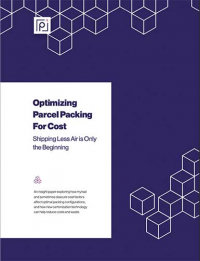What are supply chain managers saying?
Latest Material Handling News
By Peter Bolstorff, Bob Trebilcock and Judd Aschenbrand
Peter Bolstorff is executive vice president of corporate development for APICS Supply Chain Council. Bob Trebilcock is editorial director of Supply Chain Management Review. Judd Aschenbrand is director of research for Peerless Research Group.
In the July issue, we published a survey of readers of SCMR and members of APICS Supply Chain Council to create a portrait of today’s supply chain manager: How he or she entered the profession, have advanced through their careers and fight the good fight each day. As part of that survey, we also asked a few open-ended questions and invited verbatim responses. Here’s some of what they told us.
Q. At the seven year mark of your supply chain career, describe how you got there and what your responsibilities entailed?
Having started as an industrial engineer, I evolved into supply chain work when I was asked to set up an inventory control system for a small manufacturer. After a few years, I moved into materials management and then production management. At seven years in, I was a production manager for a small valve manufacturer.
At year seven, I had transitioned from operations into a commercial pricing role. I also switched from one liner company to another, where I was responsible for price and space management for seven weekly container ship services in the North Atlantic.
At the seven year mark, I was a demand manager. I worked my way into the position by gradually obtaining more supply chain skills until I was responsible for planning and releasing raw material orders, analyzing safety stock and re-order points and analyzing inventory levels.
Q. Thinking about your career, what has changed the most about the job of a supply chain professional?
The biggest change is the shift from being a functional expert in areas like production planning or inventory management to the need for us to be cross-functional change agents.
What’s changed the most? Supply chain used to be more functional. Now, we are expected to provide full end-to-end global supply chain visibility, including an in depth understanding of all the transactional processes used in customer service, logistics, warehousing and manufacturing.
Everything is more global. We’re now required to look at the Big Picture and understand how everything connects. Supply chain managers have to have the right certifications and training. And, I think mentoring is needed for the next generation.
Q. What has been the most frustrating aspect of your career?
Business leadership is still focused on short-term gains rather than looking at how we can optimize a lengthy supply chain. Some decisions that create a benefit for this quarter can reduce performance over the long term.
Because of the increasing demand to do more with less, there have been limited opportunities to develop new skills. And, with shipper requirements changing so fast, its challenging to direct supply chain investments quickly enough to keep up with the speed of change. It’s really quite the wild ride.
The most frustrating thing is that companies do not view supply chain management as a strategic function. It is still tactical versus being strategic. That is changing, however slowly.
Q. What has given you the greatest sense of satisfaction in your career?
Getting a call from the senior VP of Operations three months after completely revamping a supply chain department. He told me they were head and shoulders above where they expected to be. There had been no missed shipments even though they had been busier that season than at any other time in the company’s history.
I find a sense of satisfaction in the enormous level of responsibility I am entrusted with. In my role, I plan and distribute the work for eight manufacturing sites.
Building a high-performing team that delivers results for my current employer. In doing this, I proved to myself that I am capable of being a successful business executive and leader.
Peter Bolstorff is executive vice president of corporate development for APICS Supply Chain Council. He can be reached at [email protected]. Bob Trebilcock is editorial director of Supply Chain Management Review. He can be reached at [email protected]. Judd Aschenbrand is director of research for Peerless Research Group. He can be reached at [email protected].

Article Topics
News & Resources
Latest in Materials Handling
Lucas Watson appointed CSO for Körber’s Parcel Logistics business in North America Hyster recognizes Dealers of Distinction for 2023 Carolina Handling names Joe Perkins as COO C-suite Interview with Keith Moore, CEO, AutoScheduler.AI: MODEX was a meeting place for innovation Walmart deploying autonomous lift trucks at four of its high-tech DCs Coles shops big for automation Kathleen Phelps to join FORTNA as chief financial officer More Materials HandlingSubscribe to Materials Handling Magazine

Find out what the world's most innovative companies are doing to improve productivity in their plants and distribution centers.
Start your FREE subscription today.
April 2024 Modern Materials Handling

Latest Resources










